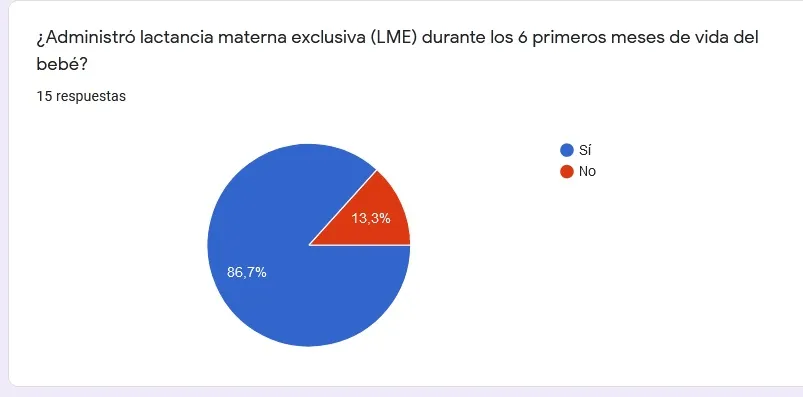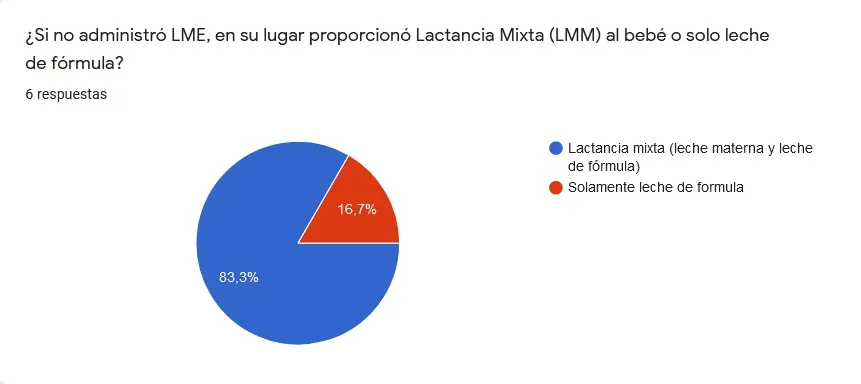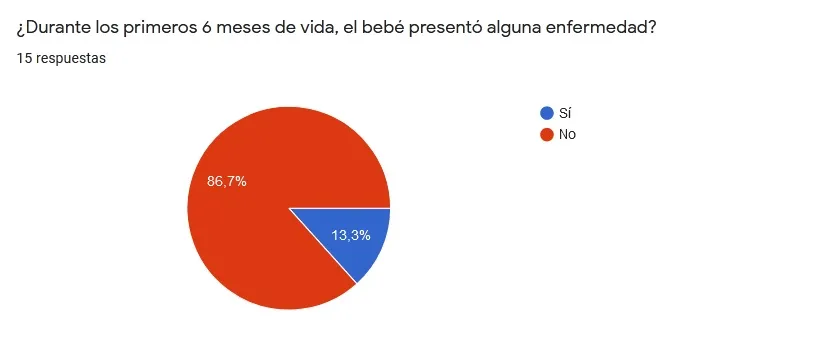
Español
Hola, madres de Hive, como están, esta es la primera vez que publico en esta comunidad, actualmente me encuentro elaborando un sitio web para el Postgrado de Periodismo en Medios Digitales de la Universidad de los Andes, y mis compañeras de estudio y yo elegimos como temática la “Alimentación de los neonatos para un buen desarrollo físico y mental”, además de suministrar información útil para orientar a la madres en este aspecto, buscamos promover la lactancia materna como una fuente primordial de nutrientes y para el fortalecimiento del sistema inmunológico del bebé.
Antes de continuar, quiero agradecer a mi amiga @chacald.dcymt quien aunque no es parte de mi grupo de estudio, ha sido mi principal apoyo en el desarrollo de gran parte de los contenidos para el sitio web que mis compañeras y yo estamos desarrollando, brindándome material de apoyo, consejos para abordar la temática, y es una de las entrevistadas a ser publicada en una sección de tips de madres para madres.
Ahora bien, sin más, quiero hablarles de los beneficios de la lactancia materna, y compartir con ustedes los resultados de una pequeña encuesta que realicé sobre la LME.
La alimentación de los bebés recién nacidos es un tema de vital importancia para las madres y las familia en general, pues la salud del bebé dependerá en gran medida de una buena alimentación con los nutrientes necesarios para su desarrollo y el buen funcionamiento de su sistema inmunológico. Diversos estudios demuestran los beneficios de la lactancia materna exclusiva durante los primeros 6 meses de vida del bebé, ya que la leche materna aporta los nutrientes necesarios para su buen desarrollo, así como inmunoglobulinas y células madres, a diferencia de la leche de fórmula, que es leche de vaca procesada y adaptada al bebé humano.
Resulta necesario destacar que la leche de la vaca tiene propiedades muy distintas a la humana y requiere de un procesamiento digestivo más complejo, esta leche pasa a través de los 4 estómagos del becerro, en los que se digiere de manera correcta, algo que no logra con efectividad el aparato digestivo del bebé, provocando efectos secundarios, pudiendo generar adormecimiento y malestar estomacales por la difícil la digestión de la leche.
En su lugar, la leche materna proporciona diversos beneficios al proporcionar al bebé células madre y antibióticos naturales. El calostro contiene una gran carga de nutrientes y su efecto es similar al de una vacuna que ayuda a prevenir en los bebés todo tipo de alergias y enfermedades, fortaleciendo su salud en general.
Diversos estudios han demostrado que el contacto de la saliva del bebé con el pezón de la madre, produce una interacción o retroalimentación que permite al cuerpo de la madre producir leche con carga de nutrientes de acuerdo a los requerimientos del bebé.
Y por último cabe mencionar el factor económico, pues durante los primeros 6 meses la madre no necesita administrar más que leche materna, prescindiendo de cualquier otro líquido como agua, o la costosa leche de fórmula.
A continuación les presento una pequeña encuesta que realicé con el propósito de conocer, en primer lugar el porcentaje de madres que llevaron a cabo lactancia materna exclusiva (LME) lactancia materna mixta (LMM), y cuantas no suministraron leche materna a su bebé en lo absoluto, y que dificultades tuvieron estás ultimas para no haber llevado a cabo la lactancia materna. En segundo lugar se propuso comparar la salud entre los neonatos que recibieron lactancia materna y los que no, para determinar si efectivamente los niños que se alimentaron con LME tuvieron un mejor desarrollo de sus anticuerpos y por ende una mejor salud.
La encuesta fue respondida por 16 madres venezolanas con niños entre 0 y 4 años de las cuales se obtuvieron los siguientes resultados:
Gráfico 1: El 86.7% de las madres encuestadas administraron LME a los bebés durante sus primeros 6 meses de vida, y un 13.3% no lo hizo, lo cual es una muestra importante de cómo la mayoría de las madres opta por suministrar leche materna, y en su mayoría no presenta dificultades para llevar a cabo la lactancia materna.

Gráfico 2: De las madres que no proporcionaron LME a sus bebés, se pudo conocer que el 83.3% brindó a su bebé LMM, esto quiere decir, que a pesar de no poder brindar una lactancia materna exclusiva durante los primeros 6 meses, si pudieron alimentar a sus bebés con leche materna y adicionar leche de fórmula ya fuese por insuficiente producción de leche para satisfacer las necesidades del bebé o por motivos de otra índole. Por otro lado, un 16,7% administró solamente leche de fórmula, del que se pudo conocer que las limitantes fueron la imposibilidad para producir leche materna, así como agotamiento físico y dificultades para llevar cabo el amamantamiento.

Gráfico 3: Se buscó establecer una relación de la salud del neonato con su alimentación, y se pudo conocer que un 86.7% no presentó ninguna enfermedad durante los primeros 6 meses de vida, y un 13.3 si presentó algún tipo de enfermedad, de este último punto se pudo conocer que las enfermedades más comunes fueron estreñimiento, cólicos e intolerancia a la lactosa.

En conclusión, se pudo conocer como las madres venezolanos tienen como primera opción para su bebé la alimentación con leche materna, y dan especial relevancia a la lactancia materna exclusiva durante los primeros 6 meses. El pequeño porcentaje de mujeres que no suministraron leche materna, tuvieron dificultades en cuanto a su producción de leche y a problemas físicos.
Mediante una muestra tan pequeña para este estudio, la comparación entre la salud de los neonatos que tuvieron y una LME y los que no, no fue concluyente, pues aquellas madres que especificaron que sus bebés tuvieron alguna enfermedad durante los primeros 6 meses, habían sido alimentados, unos con leche materna y otros con leche de formula. Por lo que seguramente las enfermedades como estreñimiento y cólicos, se debieron a otro factor.
Espero les haya gustado mi post, pueden participar en la encuesta aquí y pueden visitar el sitio web de mi trabajo aquí, sin embargo todavia no está terminado.
English
Hello, mothers of Hive, how are you, this is the first time I publish in this community, I am currently developing a website for the Postgraduate Diploma in Digital Media Journalism at the University of the Andes, and my fellow students and I chose as a theme the "Feeding of newborns for a good physical and mental development", in addition to providing useful information to guide mothers in this aspect, we seek to promote breastfeeding as a primary source of nutrients and to strengthen the immune system of the baby.
Before I continue, I want to thank my friend @chacald.dcymt who, although she is not part of my study group, has been my main support in the development of much of the content for the website that my colleagues and I are developing, providing support material, tips to address the issue, and is one of the interviewees to be published in a section of tips for mothers for mothers.
Now, without further ado, I want to talk to you about the benefits of breastfeeding, and share with you the results of a small survey I conducted on EBF.
The feeding of newborn babies is a topic of vital importance for mothers and families in general, because the baby's health will depend largely on a good diet with the necessary nutrients for their development and the proper functioning of their immune system, several studies show the benefits of exclusive breastfeeding during the first 6 months of life of the baby because breast milk provides the nutrients necessary for proper development, as well as immunoglobulins and stem cells, unlike formula milk, which is cow's milk processed and adapted to the human baby.
It is necessary to emphasize that cow's milk has very different properties from human milk and requires a more complex digestive processing, this milk passes through the 4 stomachs of the calf, in which it is digested correctly, something that the baby's digestive system does not achieve effectively, causing side effects, which can cause numbness and stomach discomfort due to the difficult digestion of formula milk.
Instead, breast milk provides several benefits by supplying the baby with stem cells and natural antibiotics. Colostrum contains a high load of nutrients and its effect is similar to that of a vaccine that helps prevent babies from all kinds of allergies and diseases, strengthening their overall health.
Several studies have shown that the contact of the baby's saliva with the mother's nipple produces an interaction or feedback that allows the mother's body to produce milk with a nutrient load according to the baby's requirements.
And finally, it is worth mentioning the economic factor, since during the first 6 months the mother only needs to administer breast milk, dispensing with any other liquid such as water or expensive formula milk.
The following is a small survey with the purpose of finding out, firstly, the percentage of mothers who exclusively breastfed (EBF), mixed breastfeeding (MBF), and how many did not breastfeed their baby at all, and what difficulties the latter had for not having breastfed. Secondly, it was proposed to compare the health of the infants who were breastfed and those who were not, to determine if indeed the infants who were fed with EBF had better antibody development and thus better health.
The survey was answered by 16 Venezuelan mothers with children between 0 and 4 years of age and the following results were obtained:
Chart 1: 86.7% of the mothers surveyed administered EBF to the babies during their first 6 months of life, and 13.3% did not, which is an important sample of how most mothers opt to supply breast milk, and for the most part do not present difficulties in carrying out breastfeeding.

Chart 2: Of the mothers who did not provide EBF to their babies, 83.3% gave their babies breast milk, which means that despite not being able to provide exclusive breastfeeding during the first 6 months, they were able to feed their babies with breast milk and add formula milk, either because of insufficient milk production to meet the baby's needs or for other reasons. On the other hand, 16.7% administered only formula milk, of which it was found that the limiting factors were the impossibility of producing breast milk, as well as physical exhaustion and difficulties in breastfeeding.

Chart 3: We sought to establish a relationship between the health of the newborn and its feeding, and it was found that 86.7% did not present any disease during the first 6 months of life, and 13.3% did present some type of disease, of which the most common diseases were constipation, colic and lactose intolerance.

In conclusion, it was found that Venezuelan mothers have breastfeeding as the first option for their babies, and give special relevance to exclusive breastfeeding during the first 6 months. The small percentage of women who did not breastfeed had difficulties in terms of milk production and physical problems.
Using such a small sample for this study, the comparison between the health of the neonates who had and SCI and those who did not was inconclusive, since those mothers who specified that their babies had some illness during the first 6 months had been fed, some with breast milk and others with formula milk. So surely illnesses such as constipation and colic, were due to another factor.
I hope you liked my post, you can visit the website of my work here however it is not finished yet.
Translated with www.DeepL.com/Translator (free version)
